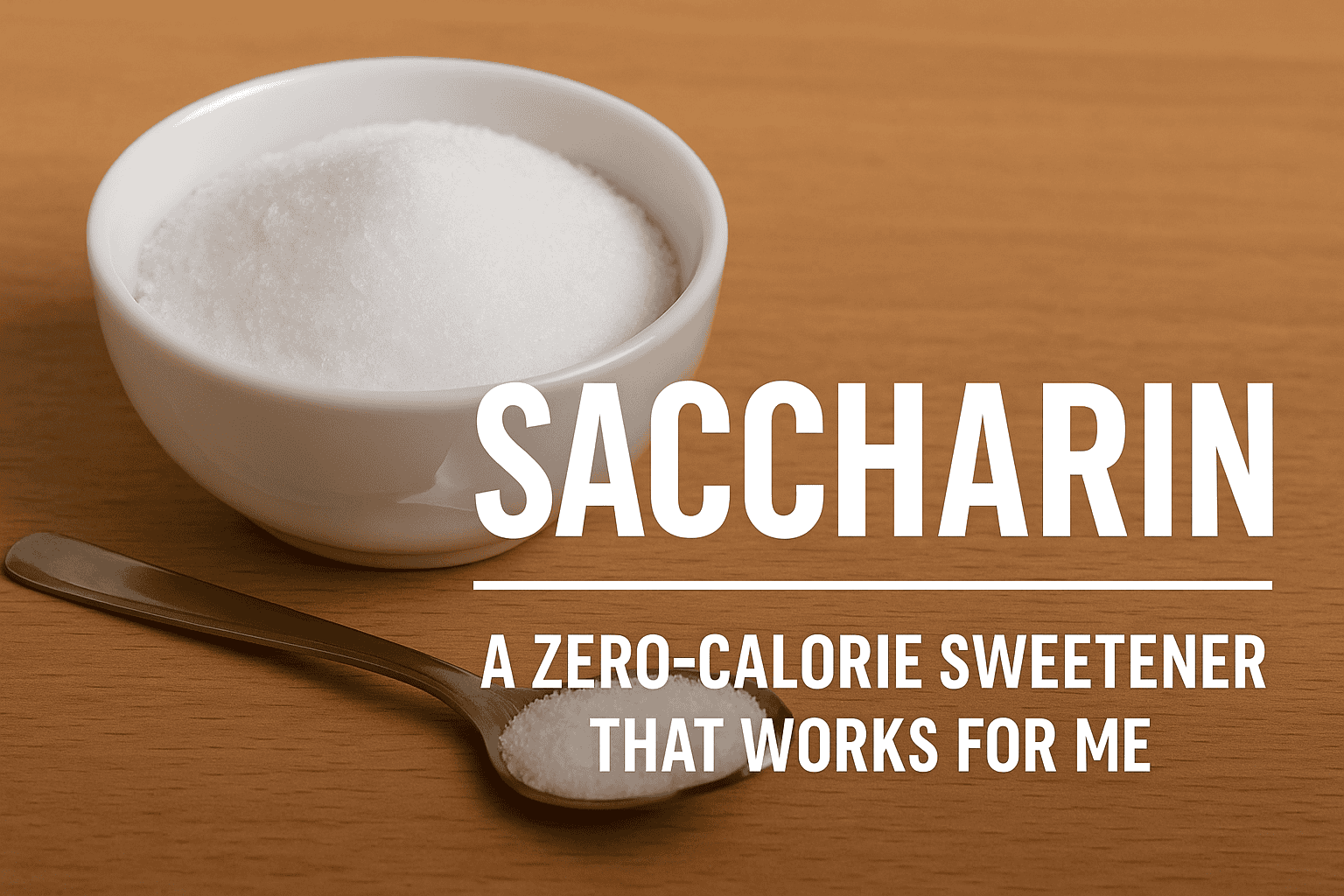As someone who has always been mindful of my sugar intake — especially when trying to manage my weight and support healthy blood sugar levels — saccharin has played a role in my journey. I’ve researched it deeply, tried products containing it, and here’s what I’ve discovered over the years.
🌿 What Is Saccharin?
Saccharin is a zero-calorie artificial sweetener that tastes incredibly sweet — up to 300 to 700 times sweeter than regular sugar. It was one of the first artificial sweeteners ever created and has been used for over a century.
Chemically, saccharin is synthetically produced from substances like toluene or phthalic anhydride — both derived from organic compounds. Despite the technical origin, the final compound is highly purified and regulated for safety.
🍬 Where I’ve Seen (and Used) Saccharin
I’ve personally encountered saccharin in various products, especially when I was looking for sugar-free options. Here are the most common places it appears:
- Food & Beverages: Diet sodas, sugar-free candy, chewing gums, diabetic-friendly desserts, and even some yogurts or baked goods.
- Toothpaste & Mouthwash: Yes, many personal care products use it to improve taste without adding sugar.
- Medicines: Some chewable tablets and syrups contain saccharin to mask bitterness.
✅ Is Saccharin Safe?
This is the part that really mattered to me. After reading numerous studies and reviews from reliable sources like the European Food Safety Authority (EFSA) and FDA, I found that:
- Saccharin is not metabolized by the body — it simply passes through and is excreted in urine.
- It has been thoroughly studied for over 100 years.
- Although older studies in the 1970s linked it to bladder cancer in rats, later research confirmed those results do not apply to humans.
- Major organizations now consider it safe for daily use within the recommended limits.
I’ve used products with saccharin regularly without any noticeable side effects.
🩺 Health Benefits That Matter to Me
🧘♀️ Weight Control
Because saccharin has no calories, it’s been a helpful tool in reducing my overall caloric intake while still enjoying sweet flavors.
🩸 Diabetes Management
It doesn’t affect blood sugar, making it an option for people like my father, who has type 2 diabetes. That personal experience reinforced my trust in it.
🧫 Gut Microbiota (Still Unclear)
Some recent studies have raised questions about artificial sweeteners possibly affecting gut bacteria. Although saccharin may have some influence, more research is needed. Personally, I haven’t noticed digestive issues from it.
⚠️ Possible Side Effects (What You Should Know)
Like any food additive, saccharin isn’t perfect for everyone. I always tell people to listen to their bodies. Some potential issues include:
- Mild allergies or sensitivity: Some people may develop headaches or digestive discomfort.
- Skin irritation: High exposure (especially in manufacturing settings) may irritate the skin.
I haven’t experienced any of these, but I recommend starting small if you’re trying it for the first time.
📚 My Verdict on Saccharin
Saccharin might not be a magic bullet, but for me, it has been a safe, practical, and effective sugar substitute. It’s especially helpful when I’m managing calories, or preparing diabetic-friendly recipes for my family. Like any food decision, it’s about balance and awareness.
Frequently Asked Questions
Yes, saccharin is approved by major health authorities and is considered safe at recommended intake levels.
It has no calories, so it can help reduce total calorie intake and support weight loss efforts.
Absolutely. It doesn’t raise blood sugar and is a popular sugar substitute for people with diabetes.
Research is ongoing, but current evidence suggests occasional use is generally well tolerated.
You’ll find it in diet sodas, sugar-free gum, toothpaste, mouthwash, and some medications.



